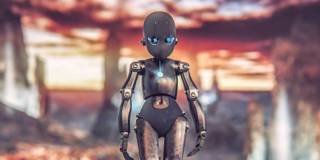Not a week goes by without some new report, book, or commentary sounding the alarm about technological unemployment and the "future of work." Yet in considering the threat posed by automation at most levels of the value chain, we should remember that robots cannot do what humans cannot tell them to do.
BERKELEY – Will the imminent “rise of the robots” threaten all future human employment? The most thoughtful discussion of that question can be found in MIT economist David H. Autor’s 2015 paper, “Why Are There Still so Many Jobs?”, which considers the problem in the context of Polanyi’s Paradox. Given that “we can know more than we can tell,” the twentieth-century philosopher Michael Polanyi observed, we shouldn’t assume that technology can replicate the function of human knowledge itself. Just because a computer can know everything there is to know about a car doesn’t mean it can drive it.
This distinction between tacit knowledge and information bears directly on the question of what humans will be doing to produce economic value in the future. Historically, the tasks that humans have performed have fallen into ten broad categories. The first, and most basic, is using one’s body to move physical objects, which is followed by using one’s eyes and fingers to create discrete material goods. The third category involves feeding materials into machine-driven production processes – that is, serving as a human robot – which is followed by actually guiding the operations of a machine (acting as a human microprocessor).
In the fifth and sixth categories, one is elevated from microprocessor to software, performing accounting-and-control tasks or facilitating communication and the exchange of information. In the seventh category, one actually writes the software, translating tasks into code (here, one encounters the old joke that every computer needs an additional “Do” command: “Do What I Mean”). In the eighth category, one provides a human connection, whereas in the ninth, one acts as cheerleader, manager, or arbiter for other humans. Finally, in the tenth category, one thinks critically about complex problems, and then devises novel inventions or solutions to them.

BERKELEY – Will the imminent “rise of the robots” threaten all future human employment? The most thoughtful discussion of that question can be found in MIT economist David H. Autor’s 2015 paper, “Why Are There Still so Many Jobs?”, which considers the problem in the context of Polanyi’s Paradox. Given that “we can know more than we can tell,” the twentieth-century philosopher Michael Polanyi observed, we shouldn’t assume that technology can replicate the function of human knowledge itself. Just because a computer can know everything there is to know about a car doesn’t mean it can drive it.
This distinction between tacit knowledge and information bears directly on the question of what humans will be doing to produce economic value in the future. Historically, the tasks that humans have performed have fallen into ten broad categories. The first, and most basic, is using one’s body to move physical objects, which is followed by using one’s eyes and fingers to create discrete material goods. The third category involves feeding materials into machine-driven production processes – that is, serving as a human robot – which is followed by actually guiding the operations of a machine (acting as a human microprocessor).
In the fifth and sixth categories, one is elevated from microprocessor to software, performing accounting-and-control tasks or facilitating communication and the exchange of information. In the seventh category, one actually writes the software, translating tasks into code (here, one encounters the old joke that every computer needs an additional “Do” command: “Do What I Mean”). In the eighth category, one provides a human connection, whereas in the ninth, one acts as cheerleader, manager, or arbiter for other humans. Finally, in the tenth category, one thinks critically about complex problems, and then devises novel inventions or solutions to them.